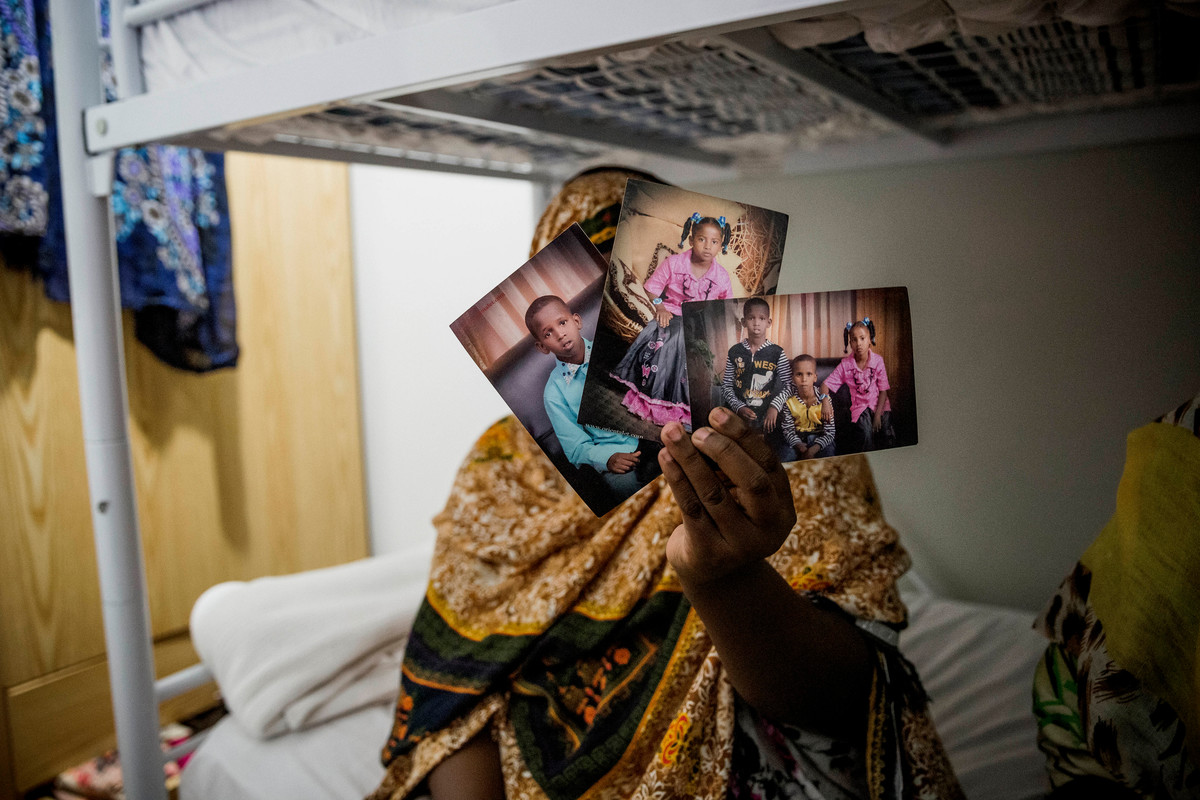UNHCR Statement: Australia must prevent looming humanitarian emergency in Papua New Guinea
UNHCR Statement: Australia must prevent looming humanitarian emergency in Papua New Guinea

UNHCR, the UN Refugee Agency, urges Australia to take responsibility and address the imminent humanitarian crisis for refugees and asylum-seekers in Papua New Guinea. UNHCR is profoundly troubled by the mounting risks of "offshore processing" arrangements, and their extraordinary human toll, as Australia seeks to abruptly decrease its support by the end of October.
UNHCR has consistently stressed the need for ongoing essential services for refugees and asylum-seekers to the Governments of Australia and Papua New Guinea. Despite this, appropriate steps to avoid further tragedy and harm to vulnerable people have not been taken.
UNHCR’s most recent comprehensive missions to Papua New Guinea in May and September 2017 have amplified longstanding concerns for the health and well-being of refugees and asylum-seekers there. Local emergency medical services are overstretched and unable to meet the additional needs of the transferred population. The discontinuation of torture and trauma services is also particularly worrying in a context where people seeking protection have suffered the negative effects of prolonged and open-ended detention.
A lack of proper planning for the closure of existing facilities, insufficient consultation with the Manusian community, and the absence of long-term solutions for those not included in the relocation arrangement to the United States of America, has increased an already critical risk of instability and harm.
“Having created the present crisis, to now abandon the same acutely vulnerable human beings would be unconscionable,” said Thomas Albrecht, UNHCR’s Regional Representative in Canberra. “Legally and morally, Australia cannot walk away from all those it has forcibly transferred to Papua New Guinea and Nauru.”
UNHCR renews its call for Australia to meet its obligations to those who have sought its protection and particularly to provide ongoing, adequate care and long-term solutions. UNHCR encourages not only the Government of Australia, but all Australian parliamentarians and leaders to prevent this looming humanitarian emergency.
Background
Approximately 3,000 refugees and asylum-seekers have been forcibly transferred by Australia to "offshore processing" facilities in Papua New Guinea and Nauru since the introduction of the current policy in 2013. Of these, some 1200 remain in Nauru and 900 in Papua New Guinea.
Following the Australia-United States’ relocation arrangement, UNHCR has referred more than 1,200 refugees to the United States of America over the past nine months. Another 500 people are still waiting for the outcome of the refugee status determination processing being carried out by authorities in Papua New Guinea and Nauru, under the Australian arrangement. Long-term solutions remain needed for all people transferred by Australia to Papua New Guinea and Nauru.
Neither Papua New Guinea nor Nauru are appropriate places of even temporary integration for these refugees and asylum-seekers, particularly given their acute needs as a result of prolonged, indefinite detention.
UNHCR has raised serious concerns with the Governments of Australia and Papua New Guinea respectively since the announcement in April 2017 that the Manus Island "Regional Processing Centre" would close by the end of October. These include health, physical security, accommodation and welfare arrangements.
With already drastically reduced health services, there are no crisis emergency health services available to the refugee and asylum-seeker population outside the "Regional Processing Centre". They are left to present to the local General Hospital (without sufficient capacity even for the Papua New Guinean population). Twice-weekly consultations by IHMS at the East Lorengau "Transit Centre" are insufficient.
Critical torture and trauma services have been discontinued, with the previous service provider departing Manus Island on 8 October 2017. One of the principal concerns is a severe lack of psychiatric doctors practicing in the Papua New Guinea community.
There is also a worrying lack of continuity for all other services including security and basic welfare. As of today, there is no clear planning for new contracts to even begin. Current service providers have advised UNHCR that a 4-week handover would be the minimum needed. Given the punitive and harmful conditions refugees and asylum-seekers have been placed in, specialist expertise is required. UNHCR is gravely concerned that sufficient expertise is not being maintained.
Since UNHCR’s repeated calls from April 2016 that refugees and asylum-seekers be moved to humane conditions with adequate services for their needs, four recognized refugees have tragically died in Papua New Guinea.
For further information, please contact:
- In Australia, Catherine Stubberfield, stubberf@unhcr.org, +61 424 545 569





